Latest News
Afghan SF recaptures Kundoz from oppositions
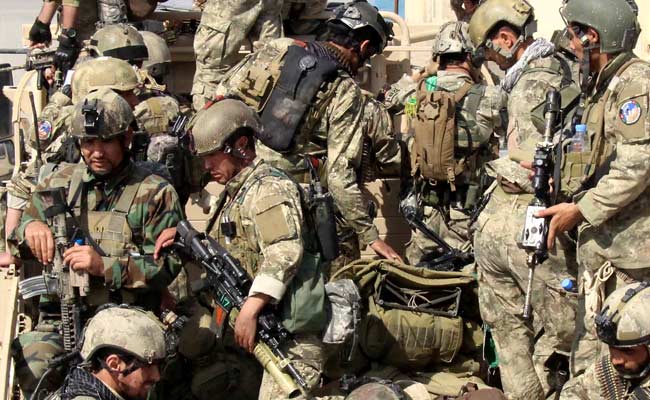
Afghan Special Forces (SF) recaptured the center of the northern Kunduz province on Thursday after fierce clashes with Taliban militants, forcing the insurgents to retreat amid heavy street battles that were still underway.
Residents said soldiers were conducting house-to-house searches and had removed the Taliban flag from the central square, replacing it with government colors.
Special Forces launched an operation at about 9pm on Wednesday alongside soldiers and police. They were backed by international Special Forces, believed to be acting mainly in an advisory role.
“By 3.30am, our special forces were able to retake the city and clear the city from terrorists,” said Sediq Sediqqi, spokesman for the Afghan interior ministry. He said: “There are lots of dead bodies of Taliban in the city right now. Hundreds of them.”
Interior ministry spokesman noted the battle is a joint army and police operation and that roadblocks set up by the Taliban to prevent any movement had been removed. He said essential supplies, including food and medicine, would be delivered soon to the residents.
He added around 200 Taliban fighters have been killed in the fighting so far but did not provide a figure for government casualties. Kunduz police chief, Sarwar Hussaini, said bodies of dead Taliban fighters lay on some of the city’s streets but that the clearance operation was complicated because some Taliban fighters had hidden inside people’s homes.
However, residents remaining inside Kunduz and hunkering down at their homes said they could still hear explosions and shootings outside.
A Taliban spokesman denied the government had retaken Kunduz, saying insurgent fighters were still resisting in the centre and controlled most of the rest of the city.
The recapture of parts of Kunduz follows three days of heavy fighting after the Taliban seized the city in a surprise assault. It was the first time since 2001 the insurgents managed to breach a large city. They did so despite being vastly outnumbered. Thousands of security forces simply fled when the militants advanced.
At least 30 people, mostly civilians, had been killed in the fighting as of Wednesday, according to a tweet from health ministry spokesman Wahidullah Mayar. He also said hospitals in Kunduz had treated about 340 injured.
The Taliban’s recent gains in Kunduz and neighboring provinces highlight that a large and strategic patch of northern Afghanistan is imperiled by a rapidly expanding insurgency.
The three days it took to bring a major city back under government control may have political consequences for President Ashraf Ghani, whose first year in office has been clouded by infighting and escalating violence around the country.

Latest News
Panjshir to Kabul water conduit project ‘waiting for budget approval’
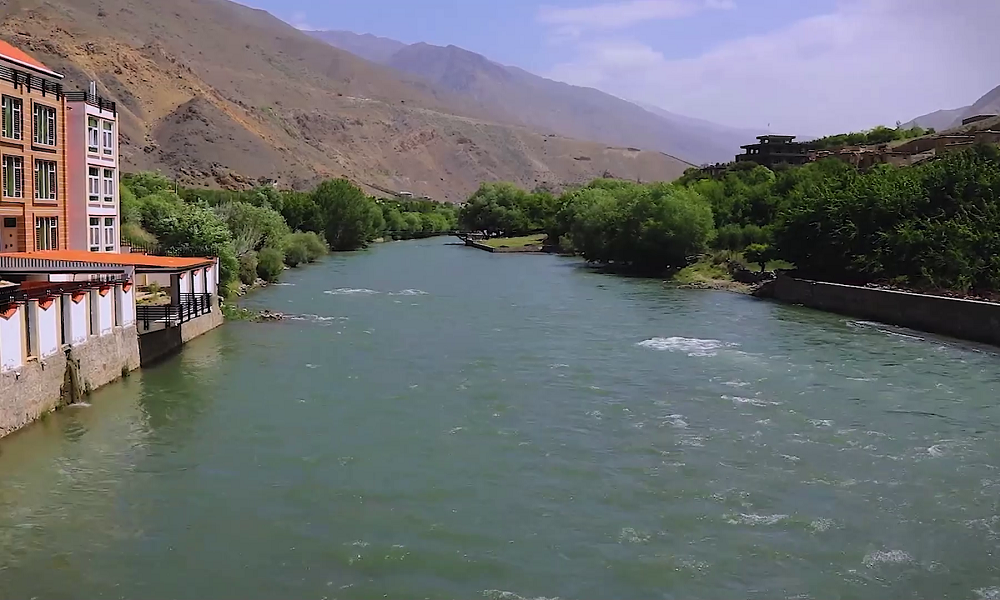
Afghanistan’s Ministry of Energy and Water is waiting for budget approval on the much-needed Panjshir to Kabul water conduit project – which, once completed, will alleviate the severe water shortage crisis in the capital.
Matiullah Abid, spokesperson for the Ministry of Energy and Water, confirmed the initial phase of reviewing and planning of the project is complete and construction work will start as soon as the budget has been approved.
Abid said the aim of the project is to help reduce water shortage issues in Kabul..
“The survey, design, and technical studies of the Panjshir water transfer project have been completed by the Ministry of Energy and Water, and the project [budget] has been sent to the leadership of the Islamic Emirate for approval,” he said.
“This project will commence once it is approved and the budget is available.”
The water conduit project will cover a distance of over 200 kms starting in Bazarak in Panjshir and ending in Tarakhail in Kabul.
Residents of Kabul have welcomed the plan and said once complete the additional water will help alleviate the drinking water crisis.
Experts meanwhile believe that this project could help Kabul’s groundwater levels to improve.
“I believe that the Panjshir water transfer project will help replenish underground water sources once again, and the people will have access to clean and healthy water. Additionally, with the transfer of Panjshir water, the agricultural lands around Kabul will also be managed with water, which, in turn, will create job opportunities for the people,” said Abdul Nasir Reshtia, an economic expert.
The plan to transfer water from the Panjshir River to Kabul was designed in 2012. In the 2020 budget of under the previous government, around $5 million was allocated for the annual transfer of 100 million cubic meters of Panjshir River water to Kabul.
The project was expected to be completed by 2023 but never got off the ground until the Islamic Emirate takeover.
Latest News
Female journalists complain about lack of access to accurate and timely information
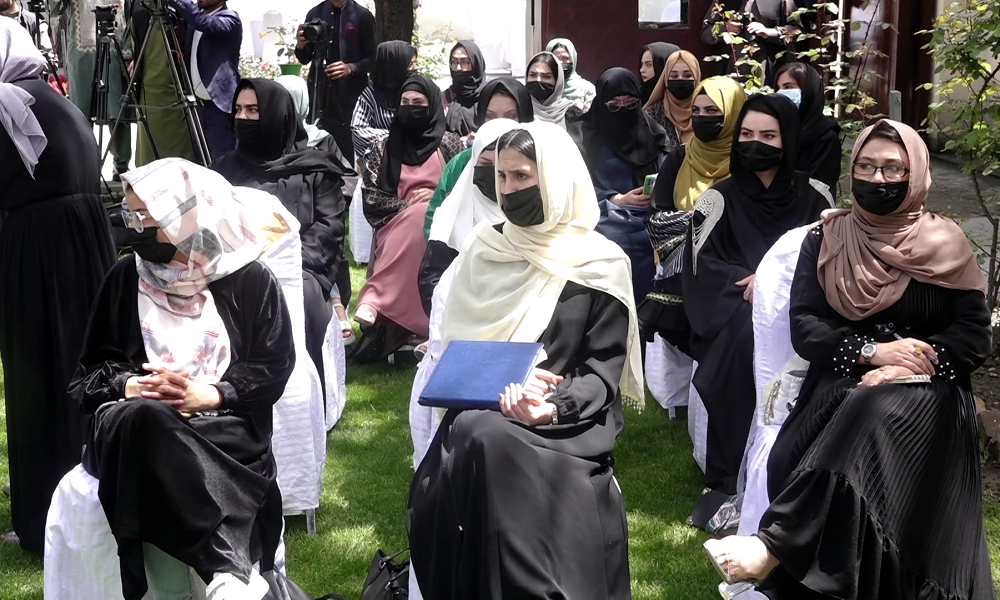
A number of female journalists say the lack of access to accurate and timely information leads to numerous challenges in their course of work.
According to some of these journalists, certain officials of the Islamic Emirate often refuse to provide information to female journalists, which creates a significant obstacle in fulfilling their professional duties.
One female journalist said: “Unfortunately, we have been subjected to intimidation by some institutions and media outlets, which hinders our work. In this regard, we urge our own media and various institutions to support female journalists the same way they support male journalists, and to allow us to continue our work.”
It is also reported that cultural and social restrictions make it difficult for female journalists to carry out their activities.
Female journalists have added that their exclusion from the media not only weakens freedom of speech but also deprives society of the perspectives and experiences of half of its population.
However, some media support organizations emphasize that the working conditions for female journalists have improved compared to last year, and currently, 745 female journalists are working in various media outlets across the country.
“The number of female journalists has increased compared to last year. Currently, 745 female journalists are working in the media. Last year, the number was 601,” said Hujjatullah Mujaddidi, head of the Afghanistan Independent Journalists Union.
Meanwhile, the Ministry of Information and Culture has stressed that the current media situation is favorable, and the ministry is committed to supporting journalists and media outlets in various sectors.
Since the IEA’s takeover in August 2021, many female journalists have lost their jobs, and some have been forced to leave the country.
Latest News
Pakistan ‘extends’ deadline for a week for Afghans to leave the country

The Pakistan government has pushed out the deadline to next week for hundreds of thousands of Afghan refugees to return to their country due to Eid al-Fitr.
AFP reported that a government official said on condition of anonymity that “the deadline has been extended until the beginning of next week due to Eid holidays.”
In early March, Islamabad announced a March 31 deadline for Afghans holding certain documentation to leave the country.
Afghans holding Afghan Citizen Cards (ACC) — issued by Pakistan authorities and held by 800,000 people, according to the United Nations — face deportation to Afghanistan after the deadline.
More than 1.3 million Afghans who hold Proof of Registration (PoR) cards from the UN refugee agency, UNHCR, are also to be moved outside the capital Islamabad and neighbouring city Rawalpindi.
On Friday, Pakistan’s Federal Interior Minister Mohsin Naqv chaired a high-level meeting to review the repatriation process of ACC holders.
He stated that continuous coordination is being maintained between the federal and provincial governments regarding the repatriation process, and the federal government will provide full support to the provinces.
Additionally, a committee has been formed based on the recommendations of the Chief Minister of Khyber Pakhtunkhwa, he said.
Naqvi also stated that Pakistan’s Minister of State for Interior Tallal Chaudhry will visit the provinces to resolve any issues arising during the repatriation process.
In addition, all arrangements for the repatriation of Afghan Citizen Card holders have been completed, Naqvi said, adding that a door-to-door awareness campaign is underway, and the mapping of Afghan Citizen Card holders has been finalized.
Holding centers, food provisions, and healthcare facilities have also been arranged for those returning, he said.
-

 Latest News5 days ago
Latest News5 days agoMore than 70,000 Afghans returned home in third week of March: IOM
-

 Health4 days ago
Health4 days agoGlobal organizations warn of health crisis due to aid cuts in Afghanistan
-

 International Sports4 days ago
International Sports4 days agoChennai grapple with IPL home truth after Bengaluru defeat
-
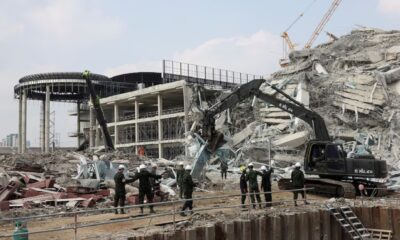
 World5 days ago
World5 days agoMyanmar quake death toll nears 700 as international aid starts to arrive
-

 World3 days ago
World3 days agoMyanmar quake death toll hits 1,700 as aid scramble intensifies
-

 Sport3 days ago
Sport3 days agoIPL 2025: Gujarat Titans beat Mumbai Indians by 36 runs
-
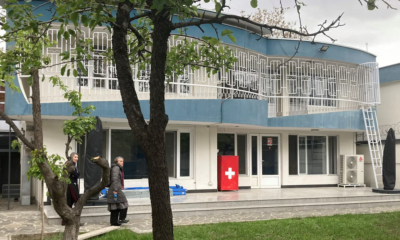
 Latest News2 days ago
Latest News2 days agoSwitzerland re-establishes presence in Kabul with humanitarian office
-
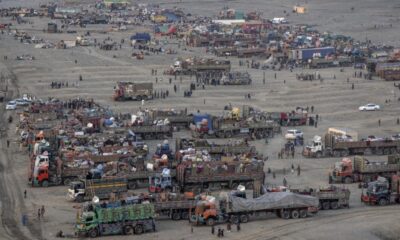
 Latest News2 days ago
Latest News2 days agoPakistan plans to expel 3 million Afghan refugees this year















